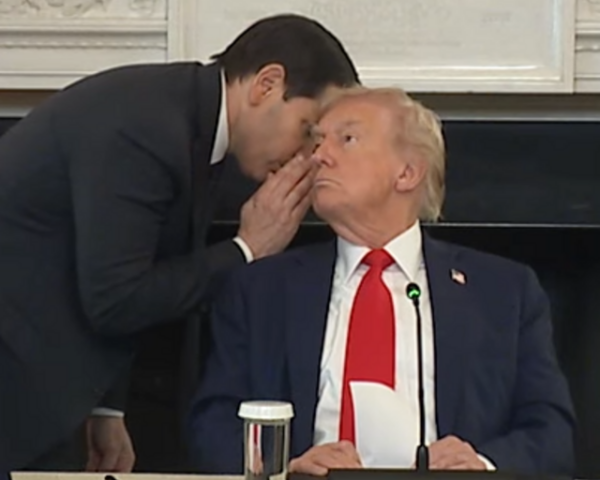A renewed struggle over war powers is unfolding on Capitol Hill as President Donald Trump signals openness to striking Iran’s nuclear facilities, prompting Senate Democrats to reassert Congress’s constitutional role in authorizing military force.
At the center of the debate is Senator Tim Kaine, a Democrat from Virginia, who is advancing a resolution that would require Trump to seek congressional approval before initiating any military action against Iran. The measure, which could come to a vote next week, needs only a simple majority and cannot be filibustered. But with Republicans holding a fifty-three to forty-seven majority, Kaine must win over at least four Republican senators to succeed.
Senator Mark Warner, a Democrat from Virginia and the vice chair of the Senate Intelligence Committee, voiced sharp frustration at the administration’s failure to brief lawmakers. “I have no idea what our policy is right now towards Iran other than chaos, and I’m the vice chairman of the Intelligence Committee,” Warner said, comparing the current atmosphere to the unchecked rush into the Iraq War. Senator Ruben Gallego, a Democrat from Arizona and a former Marine, joined the chorus, citing the lack of a coherent strategy or exit plan.
Trump, for his part, has kept his intentions deliberately ambiguous. “Nobody knows what I’m going to do,” he said Wednesday when asked about the possibility of aiding Israel in targeting Iran’s Fordow facility. While the administration has promised to brief Congress on recent developments—including Israel’s recent strike on Iran’s Natanz nuclear complex—Democrats say the delay in consultation is alarming.
In the House of Representatives, Congressman Thomas Massie, a Republican from Kentucky, has bucked his party to introduce a companion resolution aimed at restraining presidential war powers. Backed by fifteen Democrats, Massie’s proposal faces long odds. House Speaker Mike Johnson, a Republican from Louisiana, has previously shut down similar efforts, and it is unclear whether Massie’s measure will see a floor vote.
Some Republicans have shown unease. Senator Rand Paul, a Republican from Kentucky, cautioned against launching a new conflict, but the prevailing Republican posture remains deferential to the president. Senate Majority Leader John Thune, a Republican from South Dakota, dismissed talk of limiting Trump’s authority as “premature,” defending the executive’s flexibility to act swiftly.
This confrontation is only the latest iteration of a long-simmering constitutional question. Though Congress passed broad Authorizations for Use of Military Force in 2001 and 2002—measures originally intended for the wars in Afghanistan and Iraq—those authorizations remain on the books and continue to furnish presidents with expansive latitude. A bipartisan vote in 2023 to repeal them faltered in the House of Representatives. And in 2020, a resolution aimed at constraining Trump’s Iran policy passed the Senate, only to be vetoed.








